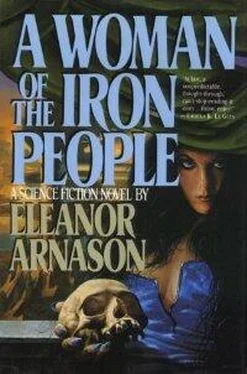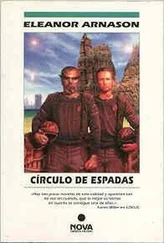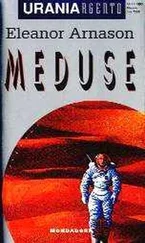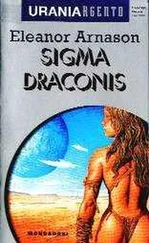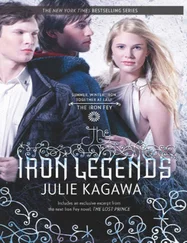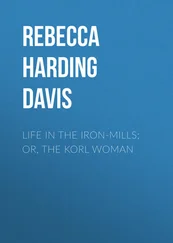“Isn’t that enough?”
“Not for me,” said Hua. “I am going to be a shamaness.”
“Then you can help me now,” said Angai. “I have many boxes full of magical objects, and they have to go into the wagon. Nia isn’t going to touch them. I know that.”
Hua grimaced and made the gesture of assent.
After the magic was loaded, they took down the tent. Nia helped. They loaded it into the wagon. By noon they were ready to go, and so was the rest of the village. Nia looked around. There wasn’t a tent anywhere in sight. Instead there were wagons and bowhorns, women lifting boxes, children running. A few wagons had begun to move. A cloud of dust hung in midair to the west of the village.
Anasu came back, leading a bowhorn: a large young gelding. There was a large white mark in the middle of its chest. The mark was curved like a bow. The grip was at the bottom. The two arms of the bow rose up on either side. The mark reminded Nia of other things as well: the emblem for “pot,” the emblem for “boat,” and the Great Moon when it was thin. If Angai had the animal, it must be lucky—though it worried Nia to look at the mark and see so many things.
“It’s five years old,” said Angai. “There is no better traveler in the herd. Be careful, though. Sometimes, not often, it gets a little edgy.”
“I have nothing to give in return,” said Nia.
“You told me about the hairless people. You gave me good advice.”
Nia made the gesture that meant “it was nothing.”
“It is enough,” said Angai.
Hua held out a pair of saddlebags. “This is for you. I’ve put in everything you ought to have. My mother—the friend of the shamaness—cannot go out onto the plain with nothing.”
Nia took the bags and fastened them to her animal. There was a peculiar feeling in her chest.
Anasu twisted around and unfastened the cloak that lay behind his saddle. “This is for you also. A parting gift, though I have never heard of a boy giving one to his mother.”
“The gift the boy gives is his life on the plain,” said Angai. “He watches the herd. He guides it and guards it. That is enough. That balances the gifts his kinfolk give.”
A true shamaness! thought Nia. She always had an answer. She was always ready to teach and explain.
She took the cloak. It was made of gray wool tufted on one side, so that it seemed like the pelt of an animal. Two brooches were fastened to it, large and made of silver. One was in the shape of a bowhorn lying down, its legs folded. The other was in the shape of a killer of the plain. A silver chain went between the brooches.
Anasu said, “It’s a good cloak. You won’t have to worry about rain as long as you have it. And you won’t be cold even in the winter.”
She fastened the cloak on top of the saddlebags, then mounted and looked at the three of them: the boy on his bowhorn, Angai and Hua standing in the middle of a patch of vegetation. Her hand felt numb. She could not move it. There were no words in her throat or mind.
“Always the same!” her friend told her. “There are things that you have never been able to say.”
“I have never liked the moment of parting.” She made the gesture of gratitude and the gesture of farewell, then turned her animal and rode away.
The entire village was in motion now, heading west. She guided her animal among the wagons, going in the opposite direction. The air was full of dust. Women shouted. Children yelled. Bowhorns made the grunting noise that meant they were working hard and not liking it.
“Huh-nuh! Huh-nuh!
Why are we doing this?
We ought to be running
free on the plain.”
She reached the end of the village. There was nothing ahead except the rutted trail and the droppings of bowhorns. The droppings were fresh and shiny black. She reined White Spot for a moment. There was something else that she had not told Angai. When the parting was over, when the people were gone, she began—always—to feel happy. Aiya! To be traveling! Aiya! To be alone!
She was not sitting properly. Her back was curved, and her shoulder went down as if she carried a heavy load. Nia straightened herself and pushed her chest out. That was better. Now her lungs had room.
A voice said, “I have something to tell you, and I didn’t want Angai to hear.”
She looked back. It was Anasu. His animal breathed heavily through its open mouth.
She made the gesture of inquiry.
“I am planning to visit the hairless people—this winter, before I go through the change.”
“Why?”
“Nothing like this has ever happened. There are no hairless people in any of the old stories and no boats like the one I rode on and certainly no men who live with women. This is utterly new. I want to see it, Nia! I want to understand.
“If I wait—who knows what will happen? Maybe I will turn into one of those men who can endure no one, not even women in the time for mating. Maybe I’ll go crazy.”
“That doesn’t happen in our family,” Nia said.
Anasu made the gesture of uncertainty. “And if everything goes well, if the change is perfectly ordinary, I will end up in the south. I’ve heard about that place! No women get down there. No one brings any information. The big men get everything, and the young men sit and wonder—what is going on in the rest of the world?”
Nia grunted and looked at her son. In the sunlight his dark fur gleamed, and there was—she could see now—a little red in it. Like copper, like his uncle Anasu.
“Be careful,” she told him.
“Of course. I’m not a fool. I’ll do nothing to get myself in trouble. I don’t intend to end up like Enshi or like you.”
“Be polite as well.”
The boy made the gesture of assent. “If you come to the village of the hairless people—in the winter, not before—I’ll be there.”
“Most likely I will come,” she said.
He made the gesture of satisfaction and the gesture of farewell and turned his animal away.
She rode north all day, following the trail of the village. In evening she made camp by a stream. A trickle of water ran down the middle of a wide sandy bed. It was enough. Nia watered her animal and then gathered wood from the bushes along the stream. She made a fire. There was food in the saddlebags: dried fruit and hard, dry travel-bread.
Hu! It was comfortable to sit and watch the flames dance red and yellow. White Spot was nearby. Nia heard the crunching of vegetation and the gurgle of the fluid in the bowhorn’s stomach.
Out on the plain a tulpa cried, “Oop-oop. Oop-oop.”
Nia listened for a while, then went to sleep.
She followed the trail of the village for two more days. On the morning of the third day she came to another trail, this one narrow and deep. Travelers had made it. They never used wagons. Instead they led strings of bowhorns loaded down with fine gifts from the Amber People and the People of Fur and Tin. Nia turned east, following the new trail. She traveled for another day. The weather stayed the same: hot and bright and clear. Hu! It was boring! She made up poems. She wondered what had happened to the oracle and Li-sa and Deragu. Were they back in their village? What about her children? Would they be all right? Would they be happy?
Angai had done a good job raising them. Why hadn’t she praised her friend? Why hadn’t she told Hua and Anasu, “You are good children”?
Toward evening there was a noise like thunder: loud and sharp. White Spot broke into a run.
Nia pulled on the reins. The animal did not stop. Instead it plunged off the trail into the vegetation. Nia kept pulling. The animal ran until they came to a stand of blade-leaf. It rose over both of them. The animal reared, then came down on all fours, shaking and snorting and sweating like one of the hairless people.
Читать дальше
